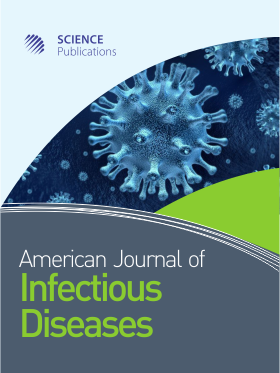Isolation and Characterization of Potential Probiotic Escherichia coli Strains from Rat Faecal Samples
- 1 Maharaja Sayajirao University of Baroda, India
- 2 Sardar Patel University, India
Abstract
Problem statement: Gastrointestinal disorders mainly diarrhea is the most common cause of morbidity and mortality among infants and children in the developing countries occurs due to infection by enteropathogens. Ccontrol of these pathogens could be achieved by nonpathogenic Escherichia coli producing bacteriocins. Approach: Primary aim of this study was to isolate E. coli strains which inhibit enteropathogens. For this purpose, E. coli strains were isolated and tested for probiotic properties such as antimicrobial activity against enteropathogens, antibiotic susceptibility and resistance to low pH, absence of virulence traits, susceptibility to proteolytic activity and detection of colicins type. Results: Approximately 280 E. coli strains were collected from rat feacal samples at different ages and were screened for their antimicrobial activity. Out of these, 47 isolates showed antimicrobial effect against E. coli DH5α and BL21 strains and 16 were effective against different pathogens viz. Salmonella sp., Klebisella pneumoniae, Staphylococcus aureus and Enterobacter sp. These 16 isolates were susceptible to the common Antibiotics and most of them better survived at pH 3 and a few survived even at pH 2. Colony PCR of these isolates with colicinogenic primer demonstrated the presence of multiple colicin types. Out of 16 isolates, 12 had multiple pore forming colicins of E1 and 1a/1b type. In addition to the pore forming E1 and 1a/1b colicins, four E. coli strains 16, 2P and 14, 20 had Emix (nuclease type)/BD type (translation blocker) colicins, respectively. Conclusion: This study showed that E. coli isolates 10, 14 and 14 P possess good probiotic properties and could be effective against enteropathogens.
DOI: https://doi.org/10.3844/ajidsp.2009.112.117

- 4,875 Views
- 3,362 Downloads
- 11 Citations
Download
Keywords
- Probiotic
- Escherichia coli
- Colicins
